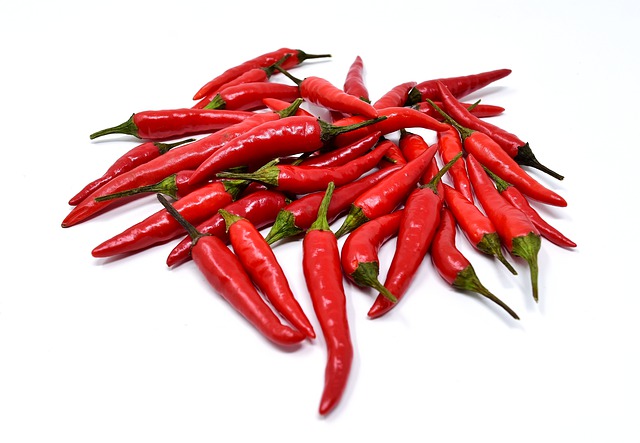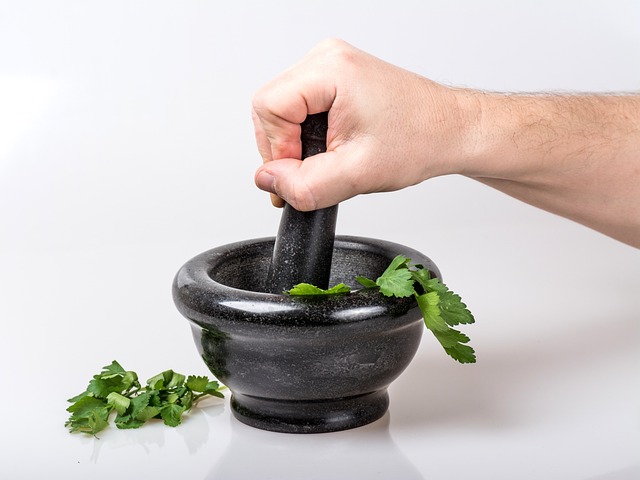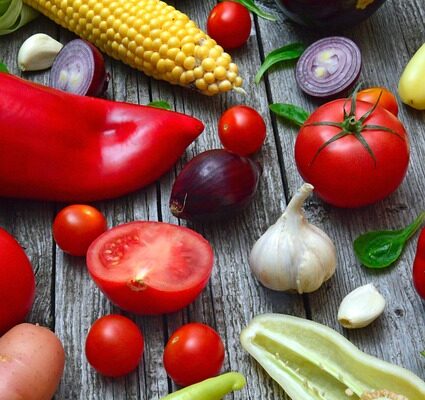The longevity diet is more of a framework for lifelong healthy eating habits than a calorie-restricted diet.
Here are some more foods from our “longevity diet,” so keep reading.
Part 1 can be found by clicking here.
A glass of red wine
In the same blueberry study, Harvard researchers discovered the strongest link between flavonoid-rich diets and longer lifespans for red wine and tea (coming up next).
Red wine, like extra virgin olive oil, is an essential component of the Mediterranean diet. Red wine’s protective effect on mortality and overall health has been attributed to its powerful phytochemical components. How much should you drink to enjoy the benefits?

A moderate intake of 1 to 2 glasses of wine per day can promote improved overall health and prevent chronic diseases such as cardiovascular disease, metabolic syndrome, cognitive decline, depression, and cancer.
Tea
Green tea is one of our favorite weight-loss foods because it has been proven to increase metabolism, suppress hunger, reduce stress, and shrink fat cells. Tea not only helps you lose weight, but it also has anti-aging properties.
According to a British Journal of Nutrition study, consuming a cup of green tea per day was connected with a 5% lower risk of cardiovascular disease mortality and a 4% lower risk of all-cause mortality. Not a lover of green tea? No worries. Drinking a cup of black tea every day was also associated with a decrease in the risk of all-cause and cancer mortality.
Tomatoes
Inflammation can prematurely age your body, putting you at risk for weight gain, heart disease, and Alzheimer’s disease. Because of the presence of lycopene, tomatoes can aid in the battle against inflammation.
Lycopene has been associated with reducing LDL, or “bad” cholesterol, in addition to its anti-inflammatory qualities. Eating lycopene-rich tomatoes and tomato products has been linked to lowering the chance of getting chronic diseases such as heart disease and cancer, according to review research published in the European Journal of Internal Medicine.
Apples
An apple a day keeps the doctor away—as well as the Grim Reaper. Good fiber from the skin can help prevent the emergence of type 2 diabetes; according to a study published in the BMJ, eating entire fruits, particularly apples, can lessen your risk of acquiring the chronic condition.
Furthermore, a review published in Advances in Nutrition described apples’ capacity to reduce the risk of chronic diseases such as cancer, cardiovascular disease, asthma, and Alzheimer’s disease, as well as improved outcomes related to aging, cognitive decline, weight management, and bone health.
Coffee
Your daily coffee habit may not only wake you up, but it may also save your life. Stanford Medicine discovered that caffeine, such as the amounts present in coffee, can help combat disease-causing chronic inflammation. Inflammation can contributes to cancer, Alzheimer’s, heart disease, and other life-threatening chronic illnesses.
The researchers also looked at another study published in the journal Nature Medicine. They discovered that those who consumed the most caffeine in their diet had the lowest levels of inflammation. Consider reading after that.
According to a new study, drinking coffee has a significant impact on your longevity. Check out One Significant Impact Coffee Has on Your Muscles, According to Latest Research.
Beans
Beans are one of the most underappreciated superfoods. They are high in protein, fiber, and micronutrients like potassium while being low in fat, saturated fat, salt, and cholesterol.
This is especially essential for older persons, as dietary fiber and potassium are both key minerals in aging populations.
A review published in the journal Critical Reviews in Food Science and Nutrition detailed how beans are connected to a lower risk of chronic diseases like cancer, heart disease, and diabetes, all of which are more common in older persons.
Dark Chocolate
Dark chocolate (more than 75% cacao) is high in antioxidants, which may help you live longer and avoid disease. According to an analysis published in Nutrition & Metabolism, chocolate consumption may lower the risk of cardiovascular disease.
This is because cocoa contains flavonoids, which protect cells from free radicals, reduce blood cholesterol and blood pressure, and increase blood flow.
Chili peppers
If you enjoy spicy foods, you may be in luck; hot peppers have been shown to increase your lifespan. A Chinese study discovered that eating spicy cuisine three to five days a week lowered the chance of death by 15%.

According to studies, the important element is capsaicin, which also has anti-inflammatory qualities and can boost your metabolism. Hot sauce may be the closest thing to a magical anti-aging supplement we have.
Salmon
This fish dish may help reduce the aging of the heart. Salmon contains omega-3 fatty acids, which can decrease blood pressure and prevent heart disease.
A tiny study published in Nutrition Research discovered that when males ate oily fish for 8 weeks. In result, their levels of anti-inflammatory omega-3 fatty acids increased while their triglycerides and inflammatory indicators decreased.
The researchers concluded that eating oily fish, such as salmon, can likely lower levels of cardiovascular disease risk indicators.
Complete grains
Eating more complex carbs like brown rice, quinoa, barley, and wheat instead than refined white carbohydrates like bread, rice, and sugar is believed to help you lose weight.
Yet, it can also help you live longer; according to an analysis by the Harvard T.H. Chan School of Public Health, persons who ate 70 grams of whole grains per day had a decreased risk of premature death compared to those who ate less or no whole grains.
Yogurt
Yogurt, particularly protein-rich Greek yogurt, is one of our favorite foods. Nevertheless, it is the live cultures in yogurt, not the protein, that may keep you alive longer. One researcher discovered an extraordinarily long lifespan among persons who ingested substantial volumes of probiotic-rich yogurt over a century ago.
Although the precise mechanism is unknown, experts believe that probiotics can improve longevity by reducing the negative effects of stress and altering your insulin response. What exactly are you waiting for? One of the 25 Greatest Yogurts for Weight Reduction will help you live a longer life.
How Does Longevity Diet Work?
The longevity diet is similar to a modified vegan diet in that certain shellfish, as well as modest amounts of meat and dairy, are permitted. It is a lifestyle as well as an eating plan that may be followed indefinitely. The guidelines recommend practicing a five-day fasting-like diet on a regular basis throughout the year.
The majority of plant-based foods are on the longevity diet food list.
The longevity diet recommends eliminating meat, poultry, and dairy items due to their high saturated fat content. If completely eliminating meat and poultry isn’t possible, the idea is to limit them as much as possible by adding them in modest amounts to add flavor to plant-based recipes rather than making them the highlight of meals.
In terms of dairy, the longevity diet advocates switching from cow’s milk and cheeses to goat’s milk, cheeses, and yogurt, which are high in minerals and have anti-inflammatory properties.
Time Recommendation
Those who are overweight or prone to gaining weight should eat two meals per day—breakfast and either lunch or dinner—as well as two low-sugar snacks.
Individuals who are at a healthy weight or who lose weight quickly should consume three meals and one low-sugar snack each day.
All meals and snacks should be had within a 10 – 12 hour period, such as between 8 a.m. and 6 p.m. and 8 p.m. The guidelines also advise not eating three to four hours before going to bed.
Those who follow the longevity diet also eat in a way that resembles fasting many times a year. This entails ingesting a restricted diet of veggies, nuts, and seeds for five days. Each day’s total calories range from 800 to 1100, with 60% of calories coming from fat, 10% from protein, and 30% from carbohydrates.
Cooking Hints for longevity diet
On the longevity diet, there are no hard-and-fast rules about food preparation, though it’s recommended to employ low-fat cooking methods like steaming, grilling, and sauteeing rather than frying.

Olive oil is a mainstay in the Mediterranean regions, where many of the concepts of the longevity diet originated. It’s high in omega-3s and a flexible cooking oil that may be used as a dressing, marinade, or even in some baked goods.
Considerations for longevity diet
The longevity diet advocates restricting protein intake to 0.31 grams – 0.36 grams per pound of body weight for people under the age of 65. To help keep muscular mass, older persons might have to eat slightly more than that, including animal protein.
Dietary Limitations on longevity diet
With the exception of people who are sensitive or allergic to nuts or any other complying food, almost everybody can safely follow the eating recommendations of the longevity diet.
Women who are breastfeeding or pregnant, as well as those with diabetes, should avoid the fasting portion of the regimen.
To Conclude on Longevity Diet
The longevity diet is more of a framework for lifelong healthy eating habits than a calorie-restricted diet. It has built-in nutritional benefits because vegetables, beans, legumes, and nuts are high in a variety of vitamins, minerals, and micronutrients.
When prepared properly, these foods have fewer calories and saturated fat than the meats, poultry, and dairy items that the guidelines recommend limiting or, better yet, eliminating entirely.
While following a fasting-like diet for five days may seem frightening. But you only need to do this a couple of times a year. This may be worth it if you want to live a longer, more vibrant life.
